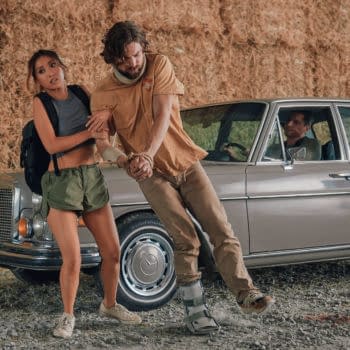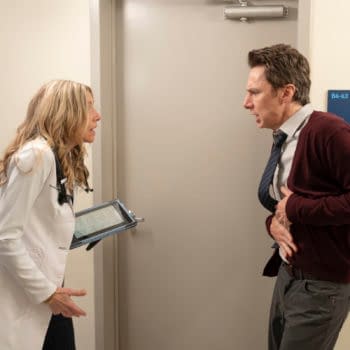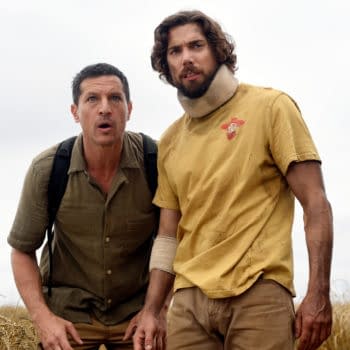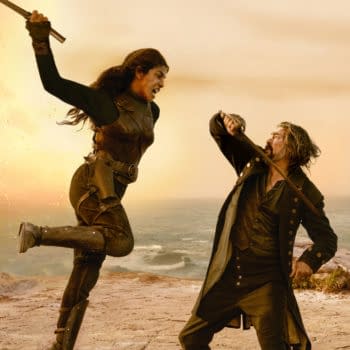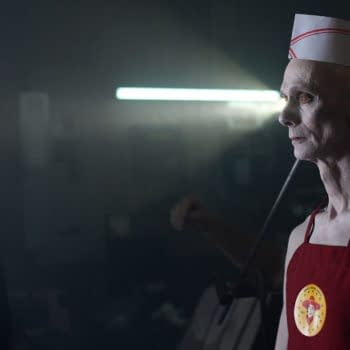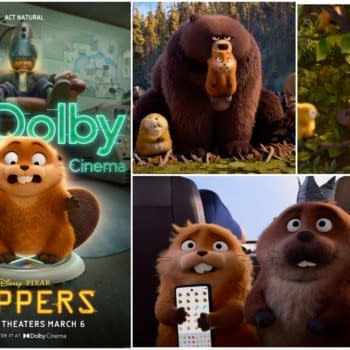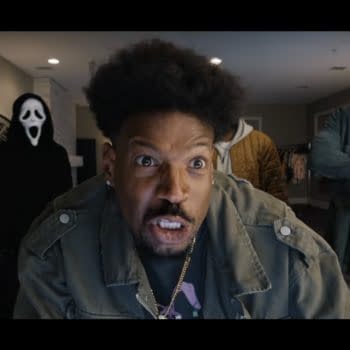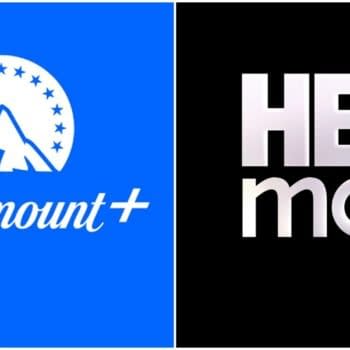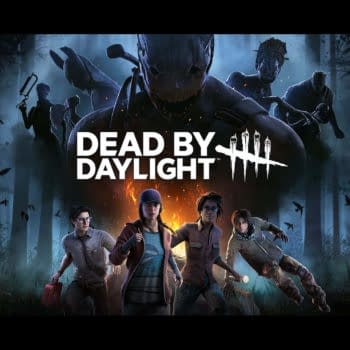Posted in: Exclusive, Interview, Movies | Tagged: Asher Angel, Ashley Foushee, Cineverse, exclusive, fiona dourif, interview, Nick Lyon, On Fire, Peter Facinelli
On Fire Director Nick Lyon on Creating a Unique Survival Experience
Director Nick Lyon (Z Nation) talks to Bleeding Cool about his latest survival thriller in Cineverse's On Fire, star Peter Facinelli & more.
Nick Lyon is no stranger to disaster survival films like 2015's Stormageddon, 2016's Earthtastrophe, and 2017's 2020. His latest is surprisingly more grounded as an unfortunately all-too-familiar phenomenon in wildfires, especially on both US coasts. His latest is On Fire, inspired by true events. He follows the story of an ordinary man (Peter Facinelli) who finds his world suddenly torn apart as devastating wildfires rip through the surrounding countryside. With precious moments ticking by, he must flee with his son (Asher Angel) and pregnant wife (Fiona Dourif) if they hope to survive Mother Nature's rapid forces. The director spoke to Bleeding Cool about how Facinelli went above and beyond for the film, taking control during production as co-director, assembling the cast, and ironic environmental problems on set.
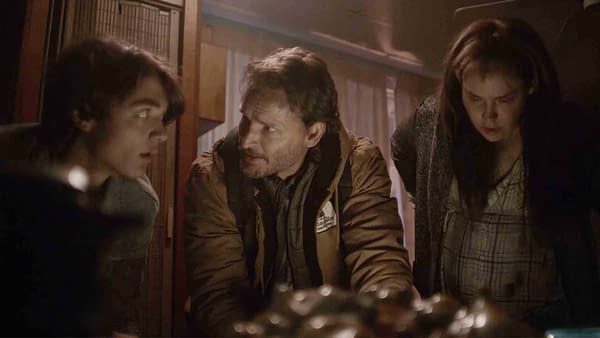
' On Fire' Creating an Environmental Cautionary Tale
Bleeding Cool: What intrigued you about 'On Fire?'
Lyon: It was a long time in the making. I had been making many disaster films that were not very grounded. I was on a camping trip with my boys and realized there's only one road out of here. I was starting to go, "Whoa! What if we were stuck in the fire? What if there was a fire down below? What are we going to do? What's our escape route and all this stuff?" I wanted to do a film that shows people in a forest fire. Usually, it's crazy. Unless you have a big studio behind you, you won't do that on an indie budget. That's what I do, and I've made a lot of films in the lower-budget realm where I must create a lot of disasters. I asked myself, "Can I pull this off?" And took on that challenge.
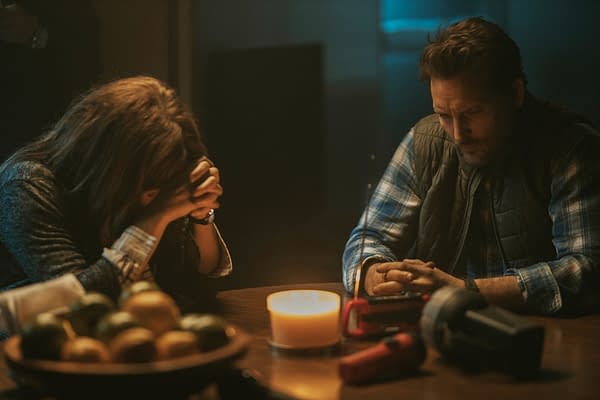
What did it mean for Peter [Facinelli] to join you to co-direct in addition to starring?
It's a big film. Peter's a great filmmaker and the lead actor. My philosophy is all about collaboration because that's what film is about. You need everybody to contribute when you take on a big movie like this. I don't believe in ego in that sense because if somebody has a good idea, they have a good idea, and it makes the film better. It becomes about the film. Peter and I had worked together on this from the get-go and had seen the movie. Together, we saw the film's potential, and so it meant a lot to have Peter because he is the head of his department with his character. But he's also a filmmaker who understands how to tell the story and how to direct. When I got sick with COVID, he could take over for the days when I wasn't there, which was great because we wouldn't have been able to finish the movie. We were butting right up against it, and any delay would have put us into Thanksgiving, and everybody was already gone. That's how it started, and under the post, we worked closely together to finish the film. He brought his elements. I got mine, and at the end of the day, I said, "I prefer to give people credit where it is due. You should have a co-directing credit for this."
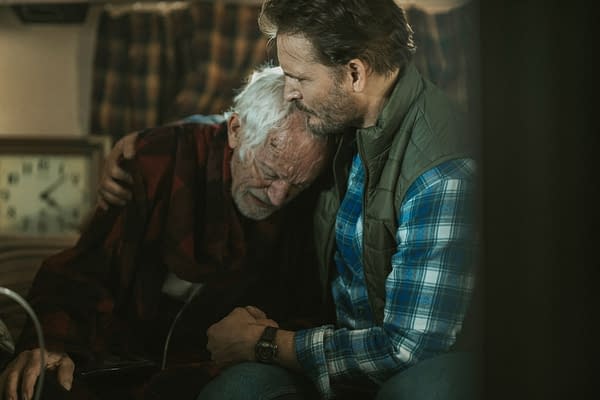
What did having the rest of the cast on board, like Fiona, Asher, and Lance [Henrikson], mean?
It's a perfect combination of actors. It was Asher who embodied a great kid, track star, and great student but came from a humble working-class family. Fiona is real and has no inhibitions to exist on film. They are not self-conscious about who they are, embodying the working-class woman having to work throughout their character's pregnancy. Their combination with Dave, who Peter Facinelli plays, also worked out great. I wanted it to be like a normal family. They have Dave's father, George, played by Lance Henriksen, living with them as a financially struggling family while carrying the burden of his medical bills. It boosts the risks of everything. If they lose their home and they lose everything, then there's a lot at stake there for this family. That's the journey of many people going through natural disasters to no fault of their own. Not everybody has insurance.
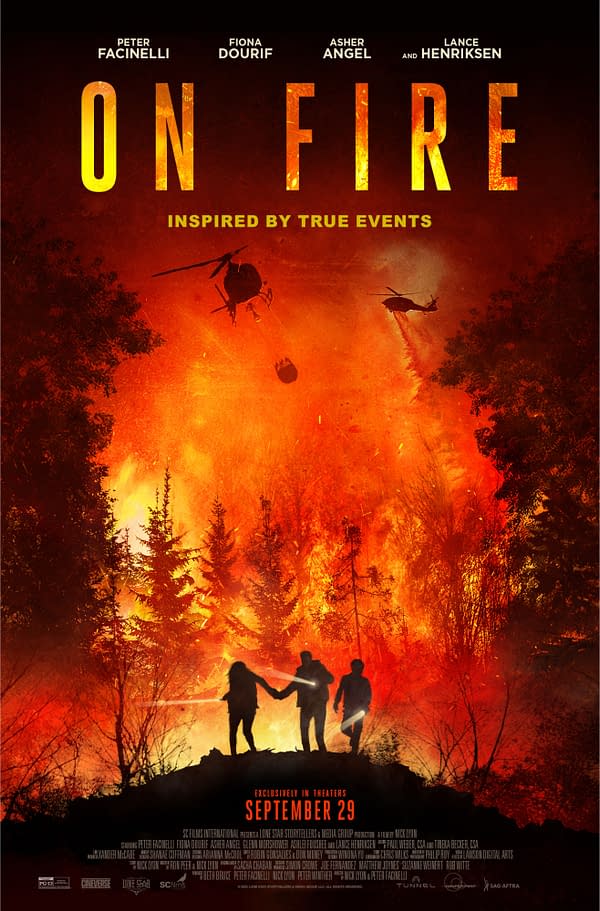
Was there a particular aspect of production that was more difficult than others?
One of the hardest things and biggest fears when starting this was, "Can we pull it off to do a forest fire film on an independent budget?" That was a big task, and I devised a methodology to do this by combining lighting effects and smoke because that alone can create an entire forest fire around somebody. You don't see the flames, so I brought in Joe Lawson, who did the visual effects. The plan was to create enough of the basis of fire there that when you enhance it, it doesn't mean you can improve it with visual effects to make a realistic fire.
We also wanted to enhance it with more actual fire, but one of the big problems was that we had to quickly abandon that because we discovered that the pine needles in the forest were all over the ground. It's not like you could sweep them away to put the fire bars in because underneath, it was about two feet of dirt, but it wasn't. Turns out it was corroded pine needles, so it worked like sawdust. As a test, we lit the first fire bar, and the ground started smoking. We're like, "Oh, boy! We won't be able to make a real fire without starting a major one." We abandoned that quickly, and then we used little spot fires, like smaller flames, to enhance the lighting and the smoke effects of fire and some shells.
Working with fire is complicated, especially when you're in the middle of a brittle forest. To pull that off, I hadn't seen any films. I can't name any low-budget films of this nature where forest fires are one of the lead actors, so to speak, as the story's antagonist. Another thing that needed a little bit of staging was that we wanted to show a juxtaposition to the survival aspect. I needed something that showed the first responder side, and Ashley Foushee, we chose to write for a 911 operator who sits there helplessly. She can't do anything, and there's a lot you can't even do. You can't send in responders if there's a forest fire because they can't get through the firewall. To show the other side of somebody unable to help people and the ability, then she did have the ability to help them at the end of the day. That was an important storyline. Ashley is a fantastic young actress who did an excellent job portraying that.
Cineverse's On Fire, which also stars Glenn Morshower and Ross McCall. The film is currently in theaters.






